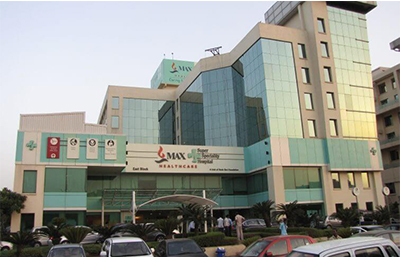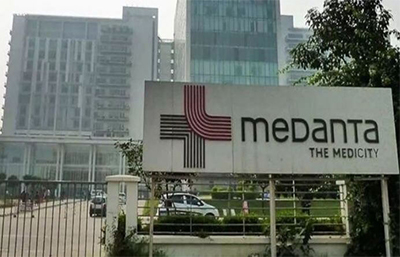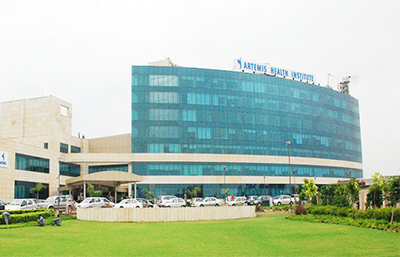High blood pressure and diabetes (both Type 1 diabetes and Type 2 diabetes) are the two main causes of kidney disease.
Let us first try to understand what happens when kidney failure occurs. The main function of the two kidneys is to filter and remove waste and minerals from the blood by producing urine. However, the damage to the nephrons in the kidneys makes them lose their dangerous waste filtering capabilities or essentially kidney failure
The harmful substances, therefore, remain in circulation in the blood which can be life-threatening over time due to the alteration of the blood’s chemical balance. This condition is termed kidney disease and when untreated can cause multiple organ failures and ultimately lead to death.
There are different stages of kidney disease and when the person has lost 90% of the kidney function in both the kidneys they are said to have end-stage kidney disease or end-stage renal disease.
People with end-stage renal disease will need to have waste removed from their bloodstream through a dialysis machine to stay alive. However dialysis treatment is temporary and for permanent relief, a kidney transplant is required.
A kidney transplant is a surgical procedure to place or transplant a healthy kidney from a living or deceased donor also known as cadaveric donor into a person whose kidneys no longer function properly. It offers the best chance of recovery for patients with kidney disease. Kidney transplant life expectancy is higher depending on how soon you get treatment.
There are certain conditions that may prevent you from being eligible for kidney transplantation surgery or be a renal transplantation procedure donor. Some are mentioned below:
- Advanced age
- Severe heart disease
- Active or recently treated cancer
- Dementia or poorly controlled mental illness
- Alcohol or drug abuse
- Any other factor that could affect the ability to safely undergo the procedure and take the medications needed after a transplant to prevent organ rejection
Is a kidney donor required to be available prior to the kidney transplant procedure?
Yes. The chances of success are high if a donor is available and ready within the family. Due to medical, ethical and regulatory issues, the chances of a non-family member’s kidney being available for transplant in many countries including India are slim.
- Kidney donor identification: Immediate family members may come forward on their own or can be requested to be a donor.
- Kidney donor available: A successful kidney transplant surgery first needs a donor preferably within the family with a healthy kidney willing to donate his/her kidney.
- Donor compatibility screening: Once the kidney transplant donor is ready, compatibility screening is required to ensure that it’s a match for the recipient to maximize the kidney transplant success rate.
- Confirmation of the donor match: It’s recommended to then do the blood typing, crossmatch and HLA typing and confirm that the willing donor’s kidney matches the patient’s kidney requirement.
What are the next steps after the kidney transplant donor match?
If the kidney donor requirements are met and the match is confirmed, please follow these steps:
- Contact the Treatment Possible team in Mumbai, India either through this website or by calling +91 98203 27706 or messaging us via WhatsApp.
- Please send the medical reports to us via email or upload them on this site.
- We shall get back to you with a free kidney specialist or nephrologist’s opinion from the best kidney transplant hospital in India.
- We also inform you about the kidney transplant cost and other details related to the duration of hospital stay and overall recovery and rehabilitation after the kidney transplantation surgery is completed.
- We will also share the legal process and documentation required to establish a relationship between the donor and recipient of the kidney transplant procedure.
- These legal documents are required to be sent to the Hospital as per the legal procedures for the kidney transplant in India.
- Once the donor and medical/travel funds are arranged, you can plan your trip to India for the kidney transplantation procedure based on the itinerary provided by us.
- Once you arrive in India, the Treatment Possible team will provide the necessary services and support including pick-up from the airport, mobile SIM card, hospital scheduling, and accommodation arrangements for the kidney donor, kidney patient and other members of the family.
Why is India the ideal destination for affordable and ethical kidney transplant surgery?
Treatment Possible is a health consultant company in Mumbai, India that connects patients across the world requiring affordable low-cost health treatment and surgery with the best doctors and hospitals in India.
The Treatment Possible team will ensure you receive quality treatment from the best kidney transplant hospitals in India at the lowest price. This is possible because of our goodwill and long-standing association with India’s best medical institutions. The kidney transplant surgery cost through Treatment Possible can be 10-20% lower than similar companies in India and 50-60% cheaper than in other countries.
Treatment Possible ensures that your renal transplant procedure is successfully completed and the treatment cost is guaranteed to be among the lowest in India. Our deep understanding of the Indian Healthcare market and our valued relations with surgeons of the best hospitals in India enables us to ensure that the cost of your kidney transplantation procedure is affordable and transparent.
procedures in a kidney transplant
- Step 1: The surgeon makes an incision in the lower part of one side of your abdomen and places the new kidney into your body.
- Step 2: The blood vessels of the new kidney are attached to blood vessels in the lower part of your abdomen, just above one of your legs
- Step 3: The new kidney’s ureter is connected to your bladder. The ureter is a tube that carries urine from the kidney to the urinary bladder.
- Step 4: The transplanted kidney is monitored for kidney infections by the transplant team and intensive care doctors.
Most kidney transplant surgery patients can return to their normal activities within eight weeks after transplant but lifting heavy objects should be avoided. Medications are to be taken for the rest of your life.
What Legal Documents are required for patients for Kidney Transplant Surgery in India?
- Birth certificate
- Passport
- An affidavit from the patient stating the list of all family members and near relatives
- Family tree
- Local address proof
- Family pictures of the patient with the donor, and other family members
- Marriage certificate (if married)
- Fifteen passport size photos
- Income proof of 3 years
- Approval from the home country embassy in India (for out of India kidney transplant surgery patients)
- Police verification for address and criminal records
What legal documents are required for a Donor for kidney transplantation surgery in India?
A donor from the family – Parents, siblings, spouse, children who are above 18 years of age. Immediate relatives except for spouse:
- Birth Certificate
- An affidavit from the donor stating the exact relationship with the patient and stating that donation is free, voluntary and without financial remuneration or coercion and given due to love and affection only.
- Passport
- A copy of the family tree
- Local address proof
- Family pictures of the patient with the donor, and other family members
- Marriage certificate (if married)
- 15 passport size photographs
- Income proof of 3 years
- Police verification for address and criminal records
If the donor is married – Presence of the spouse is essential/ children above 18 years of age In the event of Parents not alive, elder brother/sister/son or daughter to be physically present. The donor’s close relative must be physically present for the Authorization Committee Clearance.
- Birth Certificate
- An affidavit from the donor stating the exact relationship with the patient and stating that the donation is free, voluntary and without financial transactions or coercion and given due to love and affection only.
- Passport
- A copy of the family tree
- Local address proof
- Family pictures of the patient with the donor, and other family members
- Marriage certificate
- 15 passport size photographs
- Income proof of 3 years
- Birth certificate of the kids (if any)
- Old family photographs
- Police verification for address and criminal records
Note: Immediate relative to be accompanied – parent or any of the siblings of the donor or child above 18 years. The donor’s close relative must be physically present for the Authorization Committee clearance.
What are the supporting documents for the Clearance of the renal transplant procedure from the Authorization Committee?
- Affidavits from recipient, donor and the immediate relative of the donor which should be attested by the Notary Public
- Legal forms
- Donor and recipient performance
- 20 passport size photographs each of recipient and donor
- 5 Passport size photos of Immediate relative
- NOC from the Embassy which is in India
- DNA test is mandatory to establish the relationship between donor and recipient and the donor’s close relative









